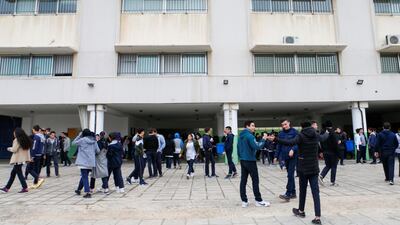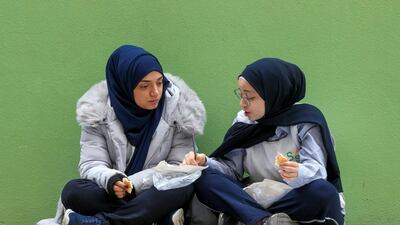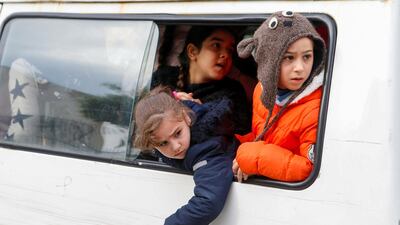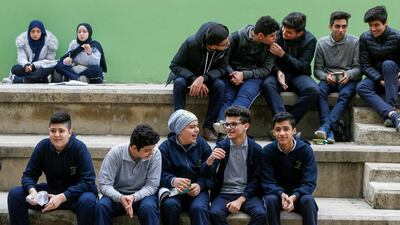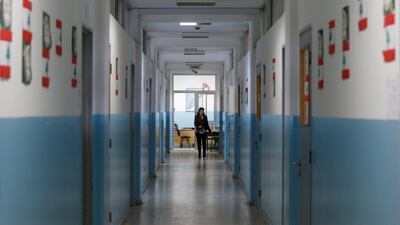Lebanon's economic crisis is forcing families to pull tens of thousands of children out of the private schools that educate most of its pupils, and into a long-neglected state education system that is already struggling to cope.
Unlike in many countries where private schools are often mainly for the wealthy, Lebanon relies on them to educate two thirds of pupils, with working class families scrimping to afford hundreds of dollars a month in fees.
Those who cannot afford it end up in an underfunded state system that educates 300,000 Lebanese pupils and has put on a second shift in recent years for 200,000 Syrian refugees.
With the worst economic crisis since the 1975-1990 civil war having struck this year, 36,000 extra pupils have moved from private schools into the state system, caretaker Education Minister Akram Chehayeb said.
Mr Chehayeb expects even more children to follow, with no more funds or staff to teach them.
"The pressure will increase on public schools," he said. "Due to the 2019 budget, we can't hire new teachers while 1,400 retire every year."
Eid Ramadan, a hairstylist, struggled to find more than $6,000 (Dh22,040) a year in total for private school for his two sons. This year he was forced to pull his younger son out.
"My kids are thankfully smart and understanding," Mr Ramadan said. "They know we were doing the impossible to keep them in private school but we’ve reached a point where we couldn’t. We’ve hit a brick wall."
The country's long-brewing economic troubles have worsened into a crisis since October, when protests erupted against the ruling elite.
Businesses have closed, workers have been laid off and wages cut. Banks are restricting access to cash and the Lebanese pound has slumped.
"The majority of the people can no longer pay thousands of dollars for tuition every year," Mr Ramadan said.
Salwa Hemadeh moved her daughter, 14, into a state school this year, having earlier shifted her three sons as the economy worsened and her husband's job as a plasterer brought in less income.
"She didn’t adapt well to the new school because it was so big and there were so many students," Ms Hemadeh said.
"But we laid out the truth: 'Either you get your education at this public school or you get no education'."

